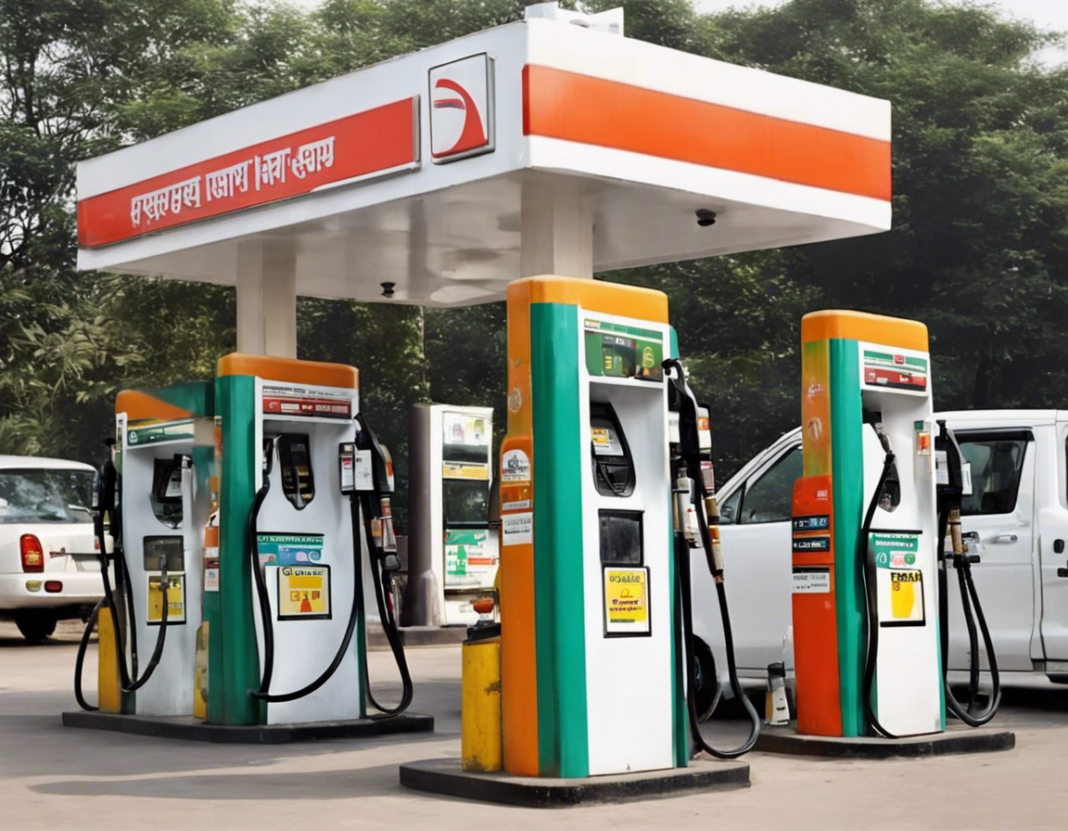With fuel being a fundamental necessity for most individuals and businesses worldwide, staying up to date with the latest petrol pump updates is crucial. From pricing changes to new technologies and regulations, the petrol pump industry is constantly evolving. In this comprehensive guide, we will delve into the latest trends, technologies, and practices at petrol pumps to help you stay informed.
Evolution of Petrol Pumps
Petrol pumps have come a long way from simple dispensers of fuel. Today, they are equipped with innovative technologies that enhance customer experience and efficiency. Here are some of the latest trends shaping the petrol pump industry:
1. Self-Service Options
Many petrol pumps now offer self-service options where customers can fill up their tanks without assistance from staff. This not only speeds up the refueling process but also gives customers more control over their transactions.
2. Contactless Payments
With the rise of digital payments, petrol pumps have increasingly adopted contactless payment options such as mobile wallets and NFC technology. This not only improves convenience for customers but also enhances security and reduces the risk of fraud.
3. Electric Vehicle Charging Stations
As the world shifts towards sustainable energy, petrol pumps are incorporating electric vehicle charging stations into their facilities. This allows them to cater to the growing number of electric vehicle owners and contribute to a greener future.
4. Enhanced Loyalty Programs
Petrol pumps are revamping their loyalty programs to reward customers for their repeat business. From discounts on fuel to free car washes, these programs incentivize customers to choose a particular petrol pump over competitors.
Fuel Quality and Pricing
Fuel quality and pricing are critical factors that influence customers’ choice of petrol pump. Here are some key aspects to consider:
1. Octane Ratings
Different vehicles require different octane ratings to perform optimally. Petrol pumps offering a range of octane ratings provide customers with options that suit their vehicle’s requirements.
2. Price Fluctuations
Fuel prices can fluctuate daily due to various factors such as global oil prices, exchange rates, and taxes. Keeping an eye on these fluctuations can help customers save money by refueling when prices are low.
3. Adherence to Standards
It is essential to choose a petrol pump that adheres to quality and safety standards set by regulatory authorities. This ensures that the fuel dispensed is of high quality and meets the necessary specifications.
Environmental Initiatives
With environmental conservation becoming a top priority, petrol pumps are implementing eco-friendly practices to reduce their carbon footprint. Here are some initiatives that petrol pumps are adopting:
1. Vapor Recovery Systems
Vapor recovery systems capture harmful gasoline vapors before they can escape into the atmosphere, reducing air pollution and improving air quality around petrol pumps.
2. Solar Power Utilization
Many petrol pumps are harnessing solar power to meet their energy needs. By installing solar panels, they not only reduce their reliance on traditional energy sources but also cut down on operating costs.
3. Recycling Programs
Petrol pumps are implementing recycling programs to minimize waste and promote sustainability. These programs involve proper disposal of used oil, recycling of plastic bottles, and other eco-friendly practices.
Safety Measures and Regulations
Safety is paramount at petrol pumps, and adherence to regulations is crucial to prevent accidents and ensure customer well-being. Here are some safety measures and regulations that petrol pumps must follow:
1. Fire Safety Protocols
Petrol pumps are equipped with fire safety equipment such as fire extinguishers, sprinkler systems, and emergency shut-off valves to prevent and handle fire emergencies effectively.
2. Regular Inspections
Regulatory authorities conduct regular inspections at petrol pumps to ensure compliance with safety standards. Any violations found during inspections are addressed promptly to maintain a safe environment for customers and staff.
3. Employee Training
Petrol pump staff undergo training on safety procedures, emergency response protocols, and customer service to handle various situations professionally and efficiently.
Future Trends in the Petrol Pump Industry
As technology continues to advance, the petrol pump industry is poised for further innovation. Here are some future trends that are likely to shape the industry:
1. Artificial Intelligence Integration
Artificial Intelligence (AI) is expected to play a significant role in optimizing operations at petrol pumps. From predictive maintenance to customer behavior analysis, AI can enhance efficiency and customer satisfaction.
2. Internet of Things (IoT) Applications
IoT devices can enable real-time monitoring of fuel levels, equipment performance, and customer traffic at petrol pumps. This data can be leveraged to streamline operations and provide personalized services.
3. Hydrogen Fuel Stations
With the rise of hydrogen fuel cell vehicles, petrol pumps may start incorporating hydrogen fuel stations alongside traditional gasoline and electric vehicle charging stations to cater to diverse consumer needs.
FAQs (Frequently Asked Questions)
1. Are self-service petrol pumps safe to use?
Yes, self-service petrol pumps are safe to use as long as customers follow the instructions provided and exercise caution while refueling.
2. How can I find the best fuel prices in my area?
You can use various mobile apps and websites that provide real-time updates on fuel prices at different petrol pumps in your area.
3. Do petrol pumps offer discounts for bulk purchases?
Some petrol pumps offer discounts for bulk purchases or loyalty program members. It is recommended to inquire at the petrol pump for available discounts.
4. Can electric vehicles charge at any petrol pump?
Not all petrol pumps have electric vehicle charging stations. It is advisable to check for the availability of charging stations before visiting a petrol pump.
5. How often should petrol pumps undergo maintenance checks?
Petrol pumps should undergo regular maintenance checks as per manufacturers’ recommendations and regulatory requirements to ensure proper functioning and safety.
In conclusion, staying informed about the latest developments in the petrol pump industry is essential for both customers and businesses. By understanding the evolving trends, technologies, and practices at petrol pumps, individuals can make informed decisions regarding where to refuel and how to contribute to a sustainable and safe environment. The future of petrol pumps is undoubtedly exciting, with innovations that promise to enhance customer experience and drive the industry forward.






